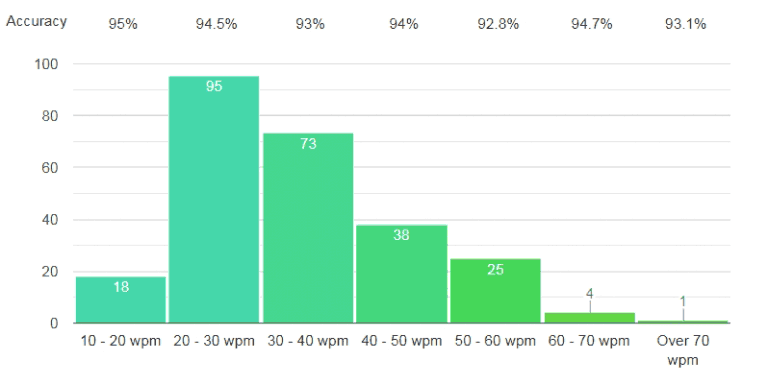

Each typing test score will be saved and you can view charts of your progress. In order to keep track of your progress, you can sign up. All those details are crucial to improve your speed. It includes statistics about your speed, where you slow down, and the type of errors you make.

After each test, we give you detailed feedback. The more you use this typing test, the faster you will type.

Practice is key to improving your typing skills. We have test material in more than 15 languages. Use this advanced typing test to discover how well you type. Slow typing and fixing typing errors moves your attention away from what you are trying to achieve (writing an email, filling in a form, etc.). The more comfortable you are typing, the more you can focus on what you are working on. This starts with focusing on touch typing and stopping the glances down at the keyboard.Typing is an important skill for anyone using a computer.

Develop muscle memory for typing certain types of commonly used letter parings. Improving typing skills requires focus on both, and it requires practice – a lot of practice. Typing speed is important, but so is precision – typing faster is useless if accuracy is sacrificed. Positions such as transcriptionists, legal secretaries, and typists often require anywhere from 60 to 90 words per minutes on average. Data entry positions usually require at least 45 words per minute. Although anyone can improve efficiency with faster and more accurate typing, some jobs require fast typing skills with a high accuracy on the first day. The job determines the typing speed required and the average for that profession. Typing tests are frequently used as a part of the recruitment process for clerical and administrative positions and are used extensively when assessing candidates for data entry, typist, and transcriptionist jobs. Typing tests simply measure your typing speed and accuracy. Looking for a Typing Test for candidate selection? Check our Typing speed and accuracy assessment.


 0 kommentar(er)
0 kommentar(er)
